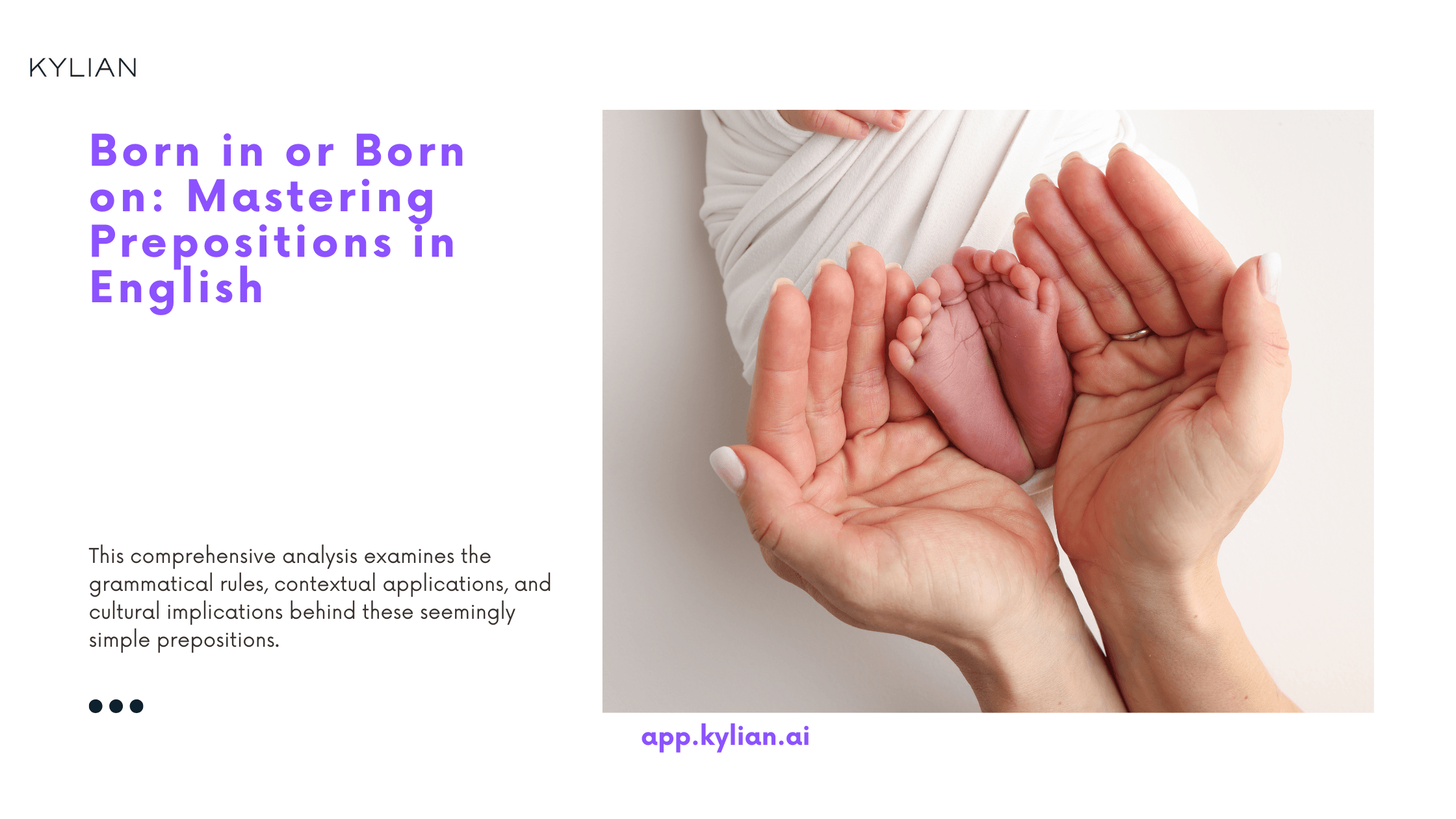

10 Leading Companies with 4-Day Workweeks
The conventional five-day workweek has dominated professional life for generations. Yet, the COVID-19 pandemic forced organizations to reconsider established workplace norms, including the structure of the workweek itself. As companies sought flexibility during uncertain times, many implemented reduced hours as temporary measures. This pivot, however, initiated a fundamental reexamination of how we structure work time. With advancements in productivity-enhancing technologies, growing recognition of mental health impacts, and renewed emphasis on work-life integration, shorter workweeks present a viable alternative to traditional models. Critical examination reveals that the 4-day workweek isn't merely a passing trend but potentially a significant paradigm shift in workplace organization.


The 12 Best Websites to Learn English in 2025
Learning English online has evolved dramatically in recent years. With countless platforms promising fluency and proficiency, finding the right website that actually delivers results requires careful evaluation. After analyzing dozens of English learning platforms, we've identified the most effective websites based on teaching methodology, user experience, and measurable outcomes. Whether you're seeking conversation practice, grammar mastery, or specialized vocabulary, these platforms stand above the rest in 2025.


Danish Alphabet 101: Comprehensive Guide for Beginners
Learning a new language starts with understanding its fundamental building blocks. For Danish, these building blocks consist of 29 letters, including three distinctive vowels that set it apart from English. This comprehensive guide breaks down everything you need to know about the Danish alphabet, from pronunciation to practical exercises, giving you the essential tools to begin your Danish language journey with confidence.


Expressing Sympathy in English: "My Thoughts Are With You"
Communication during difficult times requires both emotional intelligence and linguistic precision. The expression "my thoughts are with you" serves as a powerful vehicle for conveying sympathy and support when others face challenging circumstances. This phrase has become a cornerstone of empathetic communication in English, offering a way to acknowledge someone's pain without overstepping boundaries or making assumptions about their experience. Understanding when and how to employ this expression effectively requires insight into its cultural context, appropriate situations for use, and the subtle nuances that distinguish it from similar phrases. This exploration examines why this expression matters, how it functions in various contexts, and provides practical guidance for both native and non-native English speakers seeking to communicate compassion authentically.


Past Tense of Leave in English: Complete Guide
Understanding how verbs transform across tenses constitutes a fundamental aspect of English language mastery. The verb "leave" presents particular challenges due to its irregular conjugation pattern that diverges from standard -ed suffix additions. This comprehensive examination explores the past tense forms of "leave," contextualizes their appropriate usage, and provides essential guidance for English language learners navigating this common yet complex verb.


What Does "Feisty" Mean in English?
Language reveals culture, values, and shifting social dynamics. Within English vocabulary, certain words carry nuanced connotations that extend beyond their dictionary definitions. "Feisty" represents such a term—one whose meaning has evolved and varies significantly based on context, speaker intention, and recipient perception. The exploration of "feisty" matters now because it exemplifies how language can simultaneously empower and diminish. As we examine the etymology, usage patterns, and contextual applications of this seemingly simple adjective, we uncover deeper truths about gender dynamics, cultural perspectives, and communicative intent in contemporary discourse. This analysis deconstructs the multiple dimensions of "feisty," offering precision in understanding not just what the word means, but how and why its usage matters in various contexts.


Por qué vs. porque: Nuance Between These Spanish Words
Learning Spanish comes with several fascinating challenges, particularly when distinguishing between words that sound identical but serve completely different grammatical functions. The por qué/porque distinction represents one of these critical language hurdles that even native speakers occasionally stumble over. Why does this matter? Because misusing these terms can transform your carefully crafted sentence from perfectly clear to confusingly ambiguous. Understanding the distinction isn't just about grammatical correctness—it's about effective communication.


Business English Vocabulary: Main Phrases & Terminology
Effective communication remains the foundation of successful business operations. As global commerce expands, mastering Business English has transformed from a competitive advantage to a fundamental necessity. Research from the Cambridge Business English Certificate shows that 87% of multinational companies cite language barriers as directly impacting profit margins and operational efficiency. This comprehensive guide dissects essential Business English vocabulary across various professional contexts. By focusing on practical application rather than theoretical knowledge, this resource serves professionals at all career stages looking to strengthen their business communication skills. Each section addresses specific business situations with actionable terminology designed to elevate your professional interactions.


Learn Colors and Shades in English: From red, black ...
Color literacy represents one of the fundamental building blocks of language acquisition. Whether you're expanding your vocabulary as an English learner or helping a child develop their language skills, understanding color terminology adds richness to communication and enhances descriptive abilities. The strategic mastery of color vocabulary extends beyond simply identifying red or blue – it encompasses a nuanced spectrum of tones, shades, and color relationships that advanced speakers leverage for precision.


Born in or Born on: Mastering Prepositions in English
Navigating prepositions in English presents substantial challenges for language learners. The minute distinctions between "born in" and "born on" reflect the precision required in English communication. These prepositions carry distinct contextual roles that transform meaning when misused. The birth date expressions we employ don't merely serve grammatical functions—they encode cultural perspectives on time and place. Understanding these preposition differences impacts your English fluency directly. When you master "born in" versus "born on," you communicate with greater accuracy, demonstrate cultural understanding, and avoid common errors that might mark you as a non-native speaker. The small words matter most, particularly when discussing origins, times, and locations. This comprehensive analysis examines the grammatical rules, contextual applications, and cultural implications behind these seemingly simple prepositions. By understanding these nuances, you position yourself to communicate more authentically in both professional and personal interactions.


What Does Self-Contradiction Mean & How To Stay Clear?
Communication demands precision. When we express ideas that clash with our previous statements—knowingly or unknowingly—we contradict ourselves. This inconsistency undermines our credibility and confuses our audience. But what exactly constitutes contradiction in language, and why does recognizing it matter so critically for effective communication? Contradictions permeate daily conversations, professional communications, and public discourse. They appear in casual discussions ("I never eat junk food," said while eating chips), academic papers with inconsistent arguments, and political statements that reverse previous positions. These logical fractures disrupt trust and clarity—the foundation of meaningful exchange. This comprehensive analysis delves into the nature of contradictions—their definition, types, causes, detection methods, and avoidance strategies. Understanding contradiction transcends mere linguistic competence; it represents a fundamental aspect of critical thinking and effective expression in English.


You've Made My Day: Expressing Gratitude in English
The phrase "you've made my day" represents one of the most genuine expressions of gratitude in English conversation. When someone brightens your day through their actions or words, this expression perfectly captures that moment of appreciation. Understanding how to use this phrase and similar expressions enhances not only your conversational skills but also your ability to build meaningful connections through authentic communication.


What does "cliffhanger" mean? (English)
Narratives captivate us through emotional investment. When a storyteller abruptly pauses at a pivotal moment, leaving us suspended in uncertainty—this is the essence of a cliffhanger. This deliberate narrative technique entices audiences to return for resolution, creating a psychological hook that transcends time and medium. The term "cliffhanger" originated from serialized Victorian literature, where authors like Thomas Hardy and Charles Dickens left characters in precarious situations—sometimes literally hanging from cliffs—at chapter endings to ensure readers purchased the next installment. This technique has evolved from a commercial necessity into a sophisticated storytelling tool employed across literature, television, film, and even music. Understanding cliffhangers is crucial for appreciating narrative structure and recognizing how storytellers manipulate emotional engagement. This comprehensive analysis explores the definition, psychological impact, types, famous examples, and practical applications of cliffhangers across various media.
![Anyday or Any Day: Complete Grammar Guide [English]](/_next/image?url=https%3A%2F%2Fcdn.sanity.io%2Fimages%2F147z5m2d%2Fproduction%2Fdde5dbe1004c413e93cd65c010230a8ac6e22f37-2240x1260.png&w=3840&q=75)

Anyday or Any Day: Complete Grammar Guide [English]
Grammar nuances often create significant confusion for English learners and native speakers alike. The distinction between "anyday" and "any day" represents one such challenging case where a single space fundamentally alters meaning and correct usage. This confusion stems from English's complex rules regarding compound words, spaces, and contextual application. Understanding when to use "anyday" versus "any day" requires more than memorizing a simple rule—it demands comprehension of the grammatical principles governing these expressions and their distinct functions in communication. The difficulty increases when we encounter similar constructions like "everyday" versus "every day" that follow parallel patterns but require individual attention. This comprehensive guide examines the crucial differences between these terms, providing clarity through authentic examples, practical applications, and detailed explanations to help you apply them correctly in various contexts. By mastering these subtle distinctions, you'll elevate your writing precision and avoid common errors that might otherwise diminish your communicative effectiveness.


Imbedded or Embedded: Understanding the Correct Usage
Language precision matters in professional communication. The subtle distinction between "imbedded" and "embedded" represents one of those linguistic nuances that, when misunderstood, can undermine credibility. These terms, while appearing interchangeable to the untrained eye, carry different historical trajectories and usage patterns that demand attention from serious English learners and professionals alike. Why does this distinction matter now? In an era where technical writing proliferates across industries from journalism to engineering, mastering these subtle differences separates casual English users from true language professionals. The consequences of misusing these terms extend beyond mere academic interest—they affect how your writing is perceived by expert audiences who recognize the difference. This comprehensive analysis examines the etymology, correct usage, and contextual applications of "imbedded" versus "embedded," providing you with definitive guidance on navigating this common linguistic challenge.


Tornados or Tornadoes: Atmospheric Forces of Destruction
Tornados represent nature's most violent atmospheric phenomena—concentrated vortices of devastating wind power capable of reducing entire communities to rubble within minutes. Their unpredictable formation, erratic movement patterns, and destructive capacity continue to challenge even our most advanced meteorological prediction systems. Understanding these dangerous weather events transcends mere academic curiosity; it constitutes essential knowledge for anyone residing in tornado-prone regions. The implications of climate change on tornado frequency and intensity further elevates this topic's relevance in our contemporary discussion of extreme weather events. In this comprehensive analysis, we'll examine the fundamental mechanics behind tornado formation, explore their classification systems, analyze historic cases that redefined our understanding of these phenomena, and provide critical safety protocols that could mean the difference between life and death during an encounter with these atmospheric behemoths.


Located at or Located in: Key Differences and Usage
Understanding the subtle distinctions between prepositions marks a critical milestone in English language proficiency. Among these nuanced pairs, "located at" versus "located in" creates particular confusion for English learners. This seemingly minor preposition choice fundamentally changes meaning and precision in communication.


Laying Around or Lying Around: Understanding the Difference
The English language presents numerous challenges for learners and native speakers alike. Among these challenges, verb usage often tops the list of common mistakes. The confusion between "laying" and "lying" represents one of the most persistent grammatical mix-ups in everyday conversation and writing. This distinction matters because using the wrong form can fundamentally alter your intended meaning or simply mark your communication as imprecise. Why does this particular verbal confusion persist so stubbornly? The answer lies in the deceptive similarity between these two verbs and their overlapping past tense forms. For many English speakers, the proper usage remains elusive despite years of practice. This article aims to clarify this distinction once and for all, offering practical guidance that will eliminate this common error from your English repertoire.


The Plural of Genius in English: Geniuses or Genii?
When we encounter exceptional brilliance, we instinctively reach for words that capture this extraordinary quality. "Genius" stands as one of our most powerful descriptors for remarkable intellect or talent. Yet, when we need to reference multiple individuals possessing this rare capacity, a linguistic puzzle emerges: what precisely is the plural of genius? Is it the straightforward "geniuses," following conventional English patterns? Or could it be "genii," adhering to classical Latin traditions? This question represents more than mere grammatical pedantry—it reflects how language evolves at the intersection of historical etymologies and practical modern usage.


More Simple or Simpler? Mastering Comparative Adjectives
Language precision matters fundamentally to effective communication. When speakers and writers need to make comparisons, the difference between correctly using "more simple" versus "simpler" can significantly impact clarity and credibility. This distinction represents more than mere grammatical pedantry—it reflects a deeper understanding of English language structure and usage patterns that affect how messages are received and interpreted. The comparative form of adjectives represents a frequent stumbling block for both native and non-native English speakers. The rules governing these constructions contain numerous exceptions and variations that can create confusion even for experienced users. Mastering these distinctions provides advantages in academic writing, professional communication, and everyday interactions. This comprehensive analysis examines when to use "simpler" versus "more simple," explores the underlying grammatical principles, and provides practical frameworks to guide correct usage across various contexts.


Sit Participial Form in English
The English language distinguishes itself through elegant participle constructions that enhance both written and verbal communication. Among these, the participial form of "sit" serves as a quintessential example of how English verbs transform to fulfill various grammatical functions. Understanding participles isn't merely an academic exercise—it's a practical skill that elevates language proficiency and enables nuanced expression. This comprehensive analysis examines how the verb "sit" operates in its participial forms, revealing patterns that apply across similar verbs. By mastering these patterns, you'll gain precision in describing posture, position, and persistence—concepts fundamental to effective communication in English.


America's Favorite Baby Talk: What the Data Reveals
A comprehensive study surveying 997 Americans has revealed fascinating insights into preferences and attitudes toward baby talk across the country. The research captured data on favorite terms, usage patterns, and social perceptions, providing a detailed look at this distinctive linguistic phenomenon. Parenting transforms lives through countless joys, challenges, and learning curves. From the perspective of non-parents, the parenting journey presents an intriguing mix of fascination and bewilderment - particularly when it comes to the curious linguistic phenomenon of "baby talk."


Top 10 German Learning Books for 2025: Complete Guide
German, with its rich literary tradition and economic significance, remains one of the most valuable languages to master. Whether you're planning to study abroad, advance your career, or simply enrich your cultural understanding, finding the right learning resources is crucial. Books, despite the proliferation of digital learning platforms, continue to offer unmatched depth, structure, and reliability. Let's explore the top 10 German language books for 2025, ranging from beginner-friendly guides to advanced literary works that will elevate your proficiency.


14 Effective English Speaking Exercises to Build Fluency
The foundation of English proficiency lies in consistent practice. These 14 English speaking exercises will help you build confidence and sound more natural when communicating. Becoming proficient in English requires more than theoretical knowledge—it demands practical application through regular speaking practice. Language acquisition follows a natural progression: first listening, then speaking, followed by reading, and finally writing. To reach fluency, you must develop all four skills simultaneously, with particular emphasis on conversational abilities. This article presents proven English speaking exercises to incorporate into your daily routine, alongside complementary reading and listening activities to create a well-rounded language learning approach.